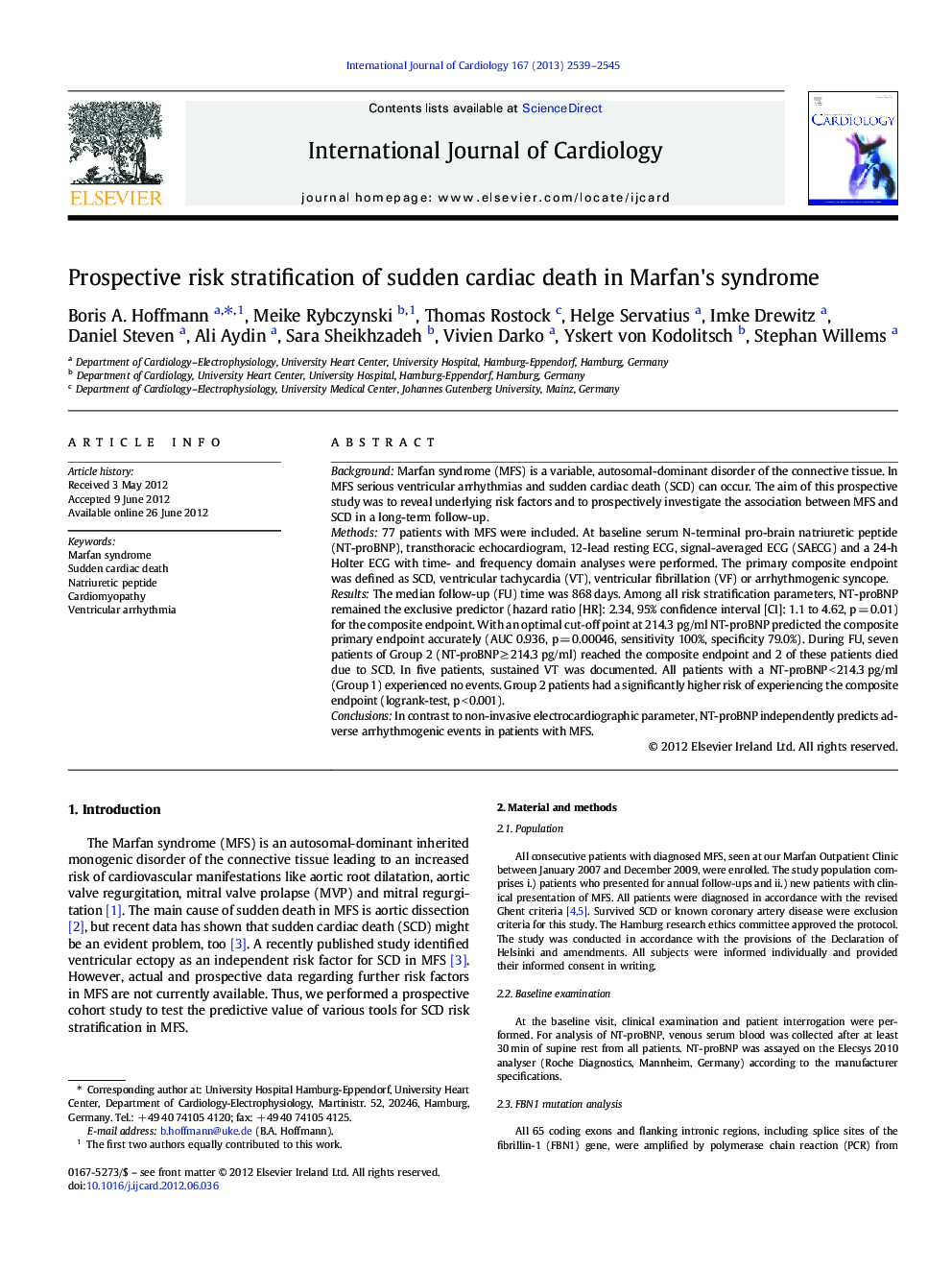| Article ID | Journal | Published Year | Pages | File Type |
|---|---|---|---|---|
| 5974450 | International Journal of Cardiology | 2013 | 7 Pages |
BackgroundMarfan syndrome (MFS) is a variable, autosomal-dominant disorder of the connective tissue. In MFS serious ventricular arrhythmias and sudden cardiac death (SCD) can occur. The aim of this prospective study was to reveal underlying risk factors and to prospectively investigate the association between MFS and SCD in a long-term follow-up.Methods77 patients with MFS were included. At baseline serum N-terminal pro-brain natriuretic peptide (NT-proBNP), transthoracic echocardiogram, 12-lead resting ECG, signal-averaged ECG (SAECG) and a 24-h Holter ECG with time- and frequency domain analyses were performed. The primary composite endpoint was defined as SCD, ventricular tachycardia (VT), ventricular fibrillation (VF) or arrhythmogenic syncope.ResultsThe median follow-up (FU) time was 868 days. Among all risk stratification parameters, NT-proBNP remained the exclusive predictor (hazard ratio [HR]: 2.34, 95% confidence interval [CI]: 1.1 to 4.62, p = 0.01) for the composite endpoint. With an optimal cutâoff point at 214.3 pg/ml NT-proBNP predicted the composite primary endpoint accurately (AUC 0.936, p = 0.00046, sensitivity 100%, specificity 79.0%). During FU, seven patients of Group 2 (NT-proBNP â¥Â 214.3 pg/ml) reached the composite endpoint and 2 of these patients died due to SCD. In five patients, sustained VT was documented. All patients with a NT-proBNP < 214.3 pg/ml (Group 1) experienced no events. Group 2 patients had a significantly higher risk of experiencing the composite endpoint (logrank-test, p < 0.001).ConclusionsIn contrast to non-invasive electrocardiographic parameter, NT-proBNP independently predicts adverse arrhythmogenic events in patients with MFS.
